Cat Has Diarrhea After Giving Birth: Why and How to Manage It?
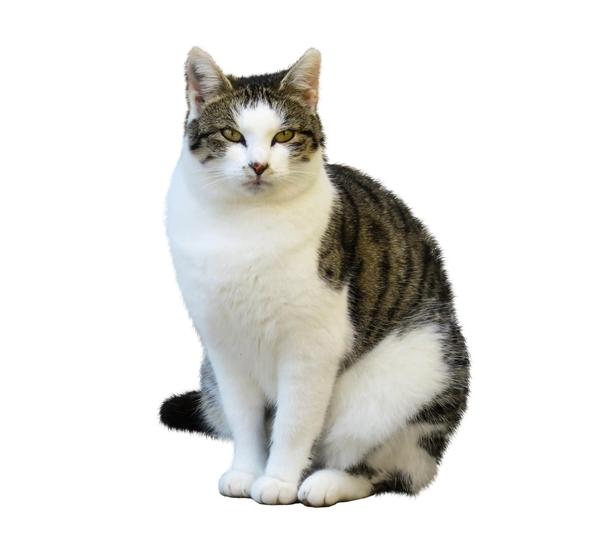
Feeling worried about your cat's post-birth health?
Are you thinking, "Why in the world does my poor kitty have diarrhea after giving birth? 🤔"
Well, don't panic, my friend.
Let's dive in and uncover the reasons behind this unexpected postpartum surprise.
Ready?
Let's begin.
Possible Causes of Diarrhea in Nursing Cats
When you nurse cats, diarrhea is a common problem.
What could be causing it?
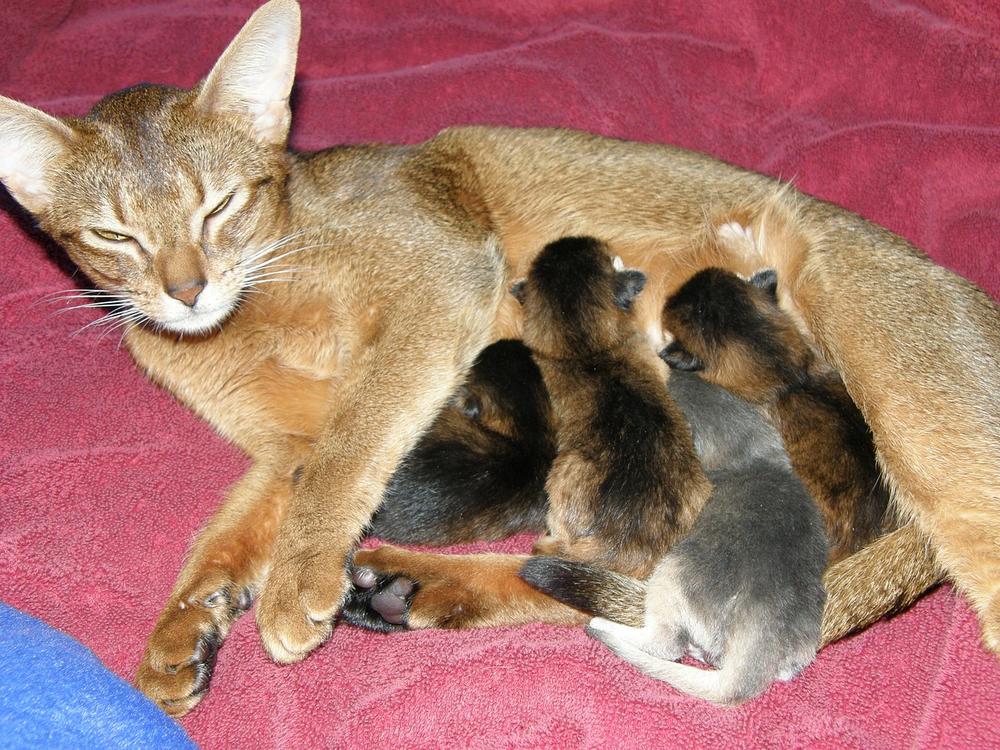
Let's see:
- Changes in diet or feeding pattern: If you suddenly change what or how you feed your cat, their digestion can get messed up and lead to diarrhea.
- Stress and anxiety: Nursing cats can get stressed out, affecting their digestion and causing diarrhea.
- Underlying illnesses: Cats may have an existing health condition that's causing both diarrhea and other symptoms.
- Frequent grooming of kittens: It's natural for mama cats to clean their babies, but if they go overboard, the fur they swallow can upset their tummy.
- Retained placenta: If a cat doesn't expel all of her placenta after giving birth, it can cause tummy troubles, including diarrhea.
- Infectious diseases: Certain viruses, bacteria, and parasites can infect nursing cats and give them diarrhea.
- Noninfectious disorders: Other conditions like pancreatitis or inflammatory bowel disease can also make cats have diarrhea.
To help your nursing cat, give her a simple, low-fiber diet. Think boiled chicken, rice, mashed potatoes, cottage cheese with white rice, or canned pumpkin.
Just remember to keep her hydrated by encouraging her to drink water.
You can add it to her food or offer different drinking options to keep her well-hydrated. 🐱
Main points I'll expand upon further down this article:
- Diarrhea after giving birth in cats typically lasts for 2-3 days.
- Stress during labor can trigger gastrointestinal issues, including diarrhea.
- Diarrhea usually does not affect the kittens, but underlying problems can.
- Probiotics can help combat chronic diarrhea in cats.
- Consult a vet if the cat experiences black or bloody stool.
- Severe dehydration, black or bloody stool, or sudden deterioration require veterinary attention.
- Severe dehydration may require tube feeding and IV fluid administration.
- Any additional symptoms alongside diarrhea should be considered an emergency.
- Inform the vet about all symptoms and recent events, including giving birth.
- Prompt veterinary guidance ensures the health of the cat and her kittens.
Understanding Feline Pregnancy and Diarrhea
After giving birth, the decrease in progesterone levels can lead to a temporary decline in intestinal muscle tone, causing diarrhea in cats.
This condition usually persists for approximately 2 to 3 days and usually resolves on its own without any intervention required. It is crucial for you to closely monitor any variations in symptoms during this period.
Preparing for a Cat Giving Birth
To ensure a smooth and healthy birthing process for your cat, follow these 10 steps:
- Create a small, comfortable space for giving birth.
- Keep the area clean and disinfected.
- Provide plenty of soft bedding for the cat to nest in.
- Keep the room temperature warm and stable.
- Limit disturbances and noise in the environment.
- Monitor the cat closely as her due date approaches.
- Be prepared with necessary supplies, such as clean towels and gloves.
- Seek veterinary assistance if your cat shows signs of distress or complications.
- Allow the cat to birth naturally, without interfering unless necessary.
- Offer support and gentle care to the cat during labor and after birth.
Maintaining a stress-free environment is key to reducing the risk of diarrhea and ensuring a healthy birth for both the mother cat and her kittens.
Now you're ready 🐾 to welcome those adorable little furballs into the world!
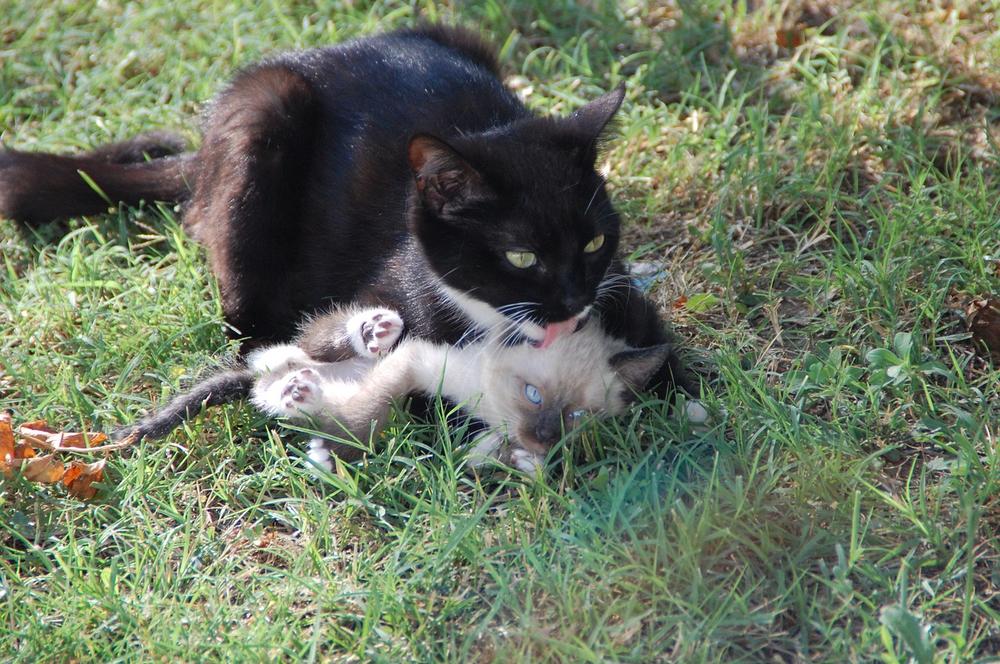
And finally, if you're wondering about whether it's necessary to change the bedding after a cat gives birth, I've got you covered.
Discover the answer in my informative blog post, Should I Change the Bedding After Cat Gives Birth.
In there, I share valuable insights and advice to help ease any concerns or doubts you may have.
Can Diarrhea Be Passed to Kittens?
Kittens can get diarrhea if their mother has it, but it's not very common. However, they can still get sick due to shared environmental factors.
If a nursing cat has stress-related or postpartum diarrhea, you don't have much to worry about. But if it's caused by intestinal parasites, her kittens could get infected.
To protect the kittens, keep everything clean and provide separate litter box and bowls for the mother cat. Also, avoid exposing the kittens to anything that could make them sick.
By doing these things, you can reduce the risk of diarrhea in both the mother cat and her kittens.
Chronic Diarrhea in Cats: Symptoms and Causes
Common causes of chronic diarrhea in cats
If you have a cat, taking care of them when they're sick is not easy. The most common cause of chronic diarrhea in cats is stress.
However, there are also other reasons that could be making your feline friend go through this unpleasant experience.
One of these reasons is inflammatory bowel disease (IBD), which is when the intestines of your cat become inflamed and irritated. This can result in chronic diarrhea.
Another major culprit for chronic diarrhea in cats is food allergies.
Just imagine how upsetting it would be if every time you ate something, it made your stomach upset.
Well, cats can experience the same issue. Allergies to certain ingredients in their food can lead to chronic diarrhea too.
Boosting immunity and improving digestion
Luckily, there are ways you can help your cat overcome chronic diarrhea.
One option is giving them probiotics like yogurt or specific supplements.
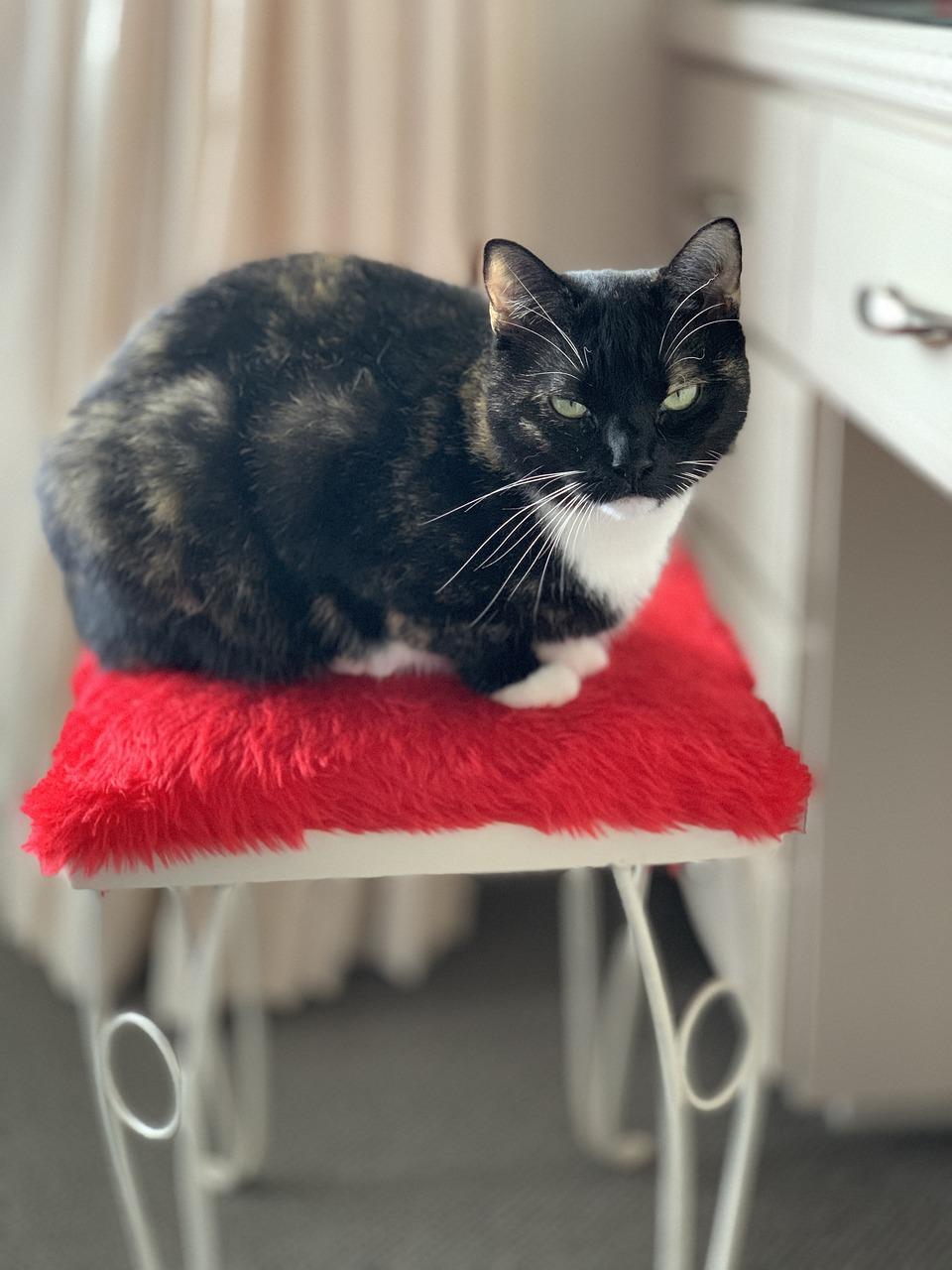
These probiotics provide beneficial bacteria to their gut, which can improve digestion and boost their immune system.
And who doesn't love yogurt?
By adding these helpful bacteria into their diet, you might see an improvement in their stool consistency and all in all intestinal health.
Moreover, boosting their immune system will aid them in fighting off any illnesses that may contribute to the diarrhea.
Seek veterinary advice for severe symptoms
However, pay attention!
If your cat starts having black or bloody stool, it could be a sign of bleeding in their upper gastrointestinal tract.
In this case, you have to consult with a veterinarian for further examination and treatment.
We don't take chances when it comes to the health of our precious fur babies, right?
A professional can accurately diagnose the cause of the bloody stool and create the best treatment plan for your beloved four-legged companion.
And now, let's explore why severe dehydration in nursing cats with diarrhea may require veterinary intervention!
When to Seek Veterinary Attention
When your nursing cat and her kittens are not feeling well, you need to know when it's necessary to take them to the vet.
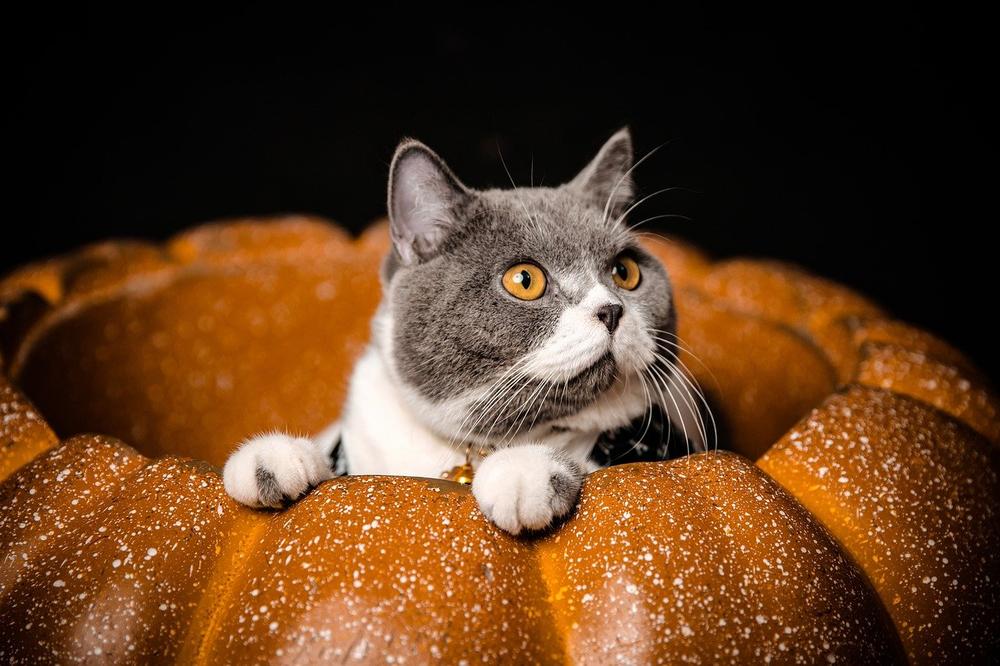
Here's a list of signs that you shouldn't ignore:
- If your cat is extremely dehydrated and you can tell by looking at her eyes or gums, it's time to call the vet.
- If you see black or bloody poop from your cat, don't wait around - get veterinary help immediately because it could be a serious problem.
- Pay attention to any other symptoms your cat may have along with diarrhea, like throwing up, losing her appetite, or appearing weak. These additional symptoms could mean something more serious is going on.
- If the mother cat suddenly gets worse, don't waste any time - reach out to a professional for assistance.
- When you talk to the veterinarian, make sure to give them as much detailed information as possible about all the symptoms your cat has been experiencing and any recent events like giving birth. This way, they will be able to diagnose the problem accurately and decide on the most appropriate treatment.
- Keep in mind that seeking help from a vet right away greatly increases the chances of recovery for both the mother cat and her adorable babies. It ensures their overall health and well-being.
Your cat's health is super important, so don't ever hesitate to ask for professional help when you need it.
And that wraps up today's article.
If you wish to read more of my useful articles, I recommend you check out some of these: Why Is My Pregnant Cat Losing Hair, Is Your Black Cat Getting White Hairs, Why Is My Cat Losing Its Whiskers, Why Is My Pregnant Cat Not Eating, and What to Expect After Deworming a Cat
Talk soon,
-Sarah Davis